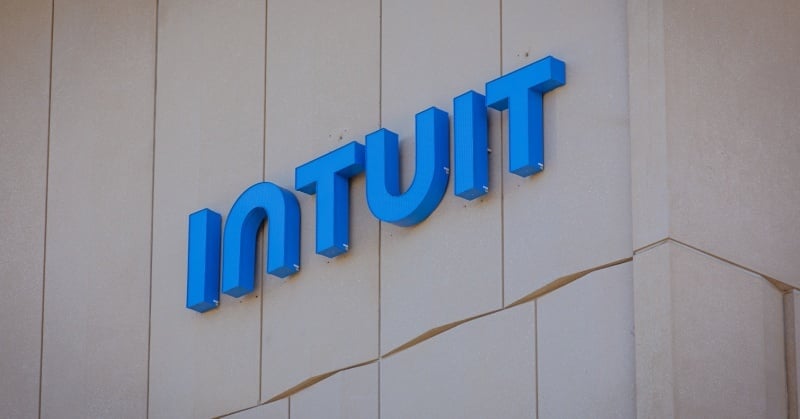I’ve been part of the Intuit ProAdvisor program since its inception. Over the years, I’ve built two firms, worked with thousands of small business clients, and, throughout my career, partnered closely with the Intuit team to help design and deliver training on QuickBooks Online and the broader ecosystem. For most of that time, it felt like a true partnership, one built on trust, collaboration and shared purpose.
But somewhere along the way, things changed.
When Intuit shifted focus toward larger firms and direct-to-SMB offerings, many of us—solo practitioners, small firm owners, bookkeepers—began to feel left behind. The community that had grown up around the ProAdvisor program started to fracture. And when that controversial ad campaign ran last year, suggesting that business owners might not need an accountant at all, it felt personal. It was as if decades of partnership had been dismissed in a single tagline.
For many of us, it didn’t feel like just a marketing misstep. It was a moment that confirmed a growing sense of distance between Intuit and the accountants who helped build its success.
So, when I sat down recently with Simon Williams, Intuit’s Vice President and Accountant Segment Leader, I approached the meeting with skepticism. But I also brought hope—the hope that Intuit might be ready to rebuild what was lost.
Acknowledging the disconnect
Simon didn’t shy away from the issue. “We had a wobble,” he admitted. That simple acknowledgment mattered more than I expected. It was a recognition that Intuit had, in fact, drifted from its roots. He went on to share that CEO Sasan Goodarzi has spent much of the past year personally meeting with accountants across firm sizes to understand their concerns.
From those conversations emerged a new set of principles—ones designed to realign the organization around the accountant relationship. For the first time, both of Intuit’s main business groups, Consumer Tax and Global Business Solutions, have united and jointly signed onto those principles. I believe that’s a powerful internal signal.
The Intuit Accountant Suite: A step toward reconnection
Perhaps the most tangible expression of this recommitment is the Intuit Accountant Suite. The platform will ultimately replace QBOA (QuickBooks Online Accountant) over the next 12 months. Like QBOA, it brings together firm management, AI insights, and integrated training under one roof. But what makes it different is that it will bring together all of the Intuit tools accountants use and support under one platform. It truly feels like the kind of unified experience we’ve been asking for.
Simon explained that this new suite was built “with and for accountants.” It’s meant to support firms of all sizes, including the small and solo practices that make up the heart of the community. The coming refresh of the ProAdvisor program, scheduled for full implementation in 2027, will also reward not just sales volume but engagement, specialization, and contribution to the ecosystem.
That’s an important shift. For years, many smaller firms have struggled to earn recognition for their deep client work because they didn’t fit the volume-based model. A broader, more inclusive framework is a welcome change.
Respecting the client relationship
One of the most painful issues over the past few years has been the feeling that Intuit was competing with its own accountant partners. Many of us were frustrated by in-product marketing messages that promoted Intuit’s own services directly to our clients.
When I asked Simon about this, he was refreshingly candid. Through the new Accountant Suite, firms will soon be able to set their preferences—opting out of those competing promotions and defining which services they offer. In other words, we’ll have the power to protect the relationships we’ve built. That may seem like a small thing, but for accountants, it’s huge. It’s about respect.
Collaboration over competition
Beyond the platform, Intuit’s broader vision is to create a true ecosystem—one where accountants can collaborate with, not compete against, Intuit. The company plans to enable firms to:
- Offer surplus capacity to serve Intuit’s internal client base.
- Receive referrals when a client needs professional accounting support beyond Intuit’s Live platform capabilities.
- Leverage Intuit’s internal AI and infrastructure tools while maintaining their own brand and independence.
That vision of shared opportunity, if implemented well, could restore the spirit of partnership many of us remember from the early days.
Hope, with guardrails
I’ll be honest—I didn’t expect to leave this conversation feeling optimistic. I’ve been part of this ecosystem long enough to know that words are easy; execution is hard. But the tone of this new leadership, the structure of their initiatives, and the consistency of their message suggest something real is happening.
For me, trust won’t be rebuilt by a single meeting, announcement, or new platform. It will come from consistency—how Intuit communicates, how they market, how they listen, and how they deliver on the promises made to the accountant community.
Looking ahead
I left my meeting with Simon Williams feeling something I hadn’t felt in a while: alignment. I'm hopeful that Intuit's message and its action are starting to resync for our entire community.
To my fellow accountants and bookkeepers—especially those who’ve been part of this journey from the start—I encourage you to stay engaged. Keep giving feedback. Keep asking questions. Because when this partnership works, it truly elevates all of us.
We’ve been through a rough patch, yes. But if the company continues down this new path—with humility, transparency, and collaboration—then maybe, just maybe, this story won’t end as a breakup after all.
The article was written with the assistance of AI.
.png?width=150&height=63&name=TWRlogo-regmark_blueblack%20(1).png)
.png)










Do you have questions about this article? Email us and let us know > info@woodard.com
Comments: